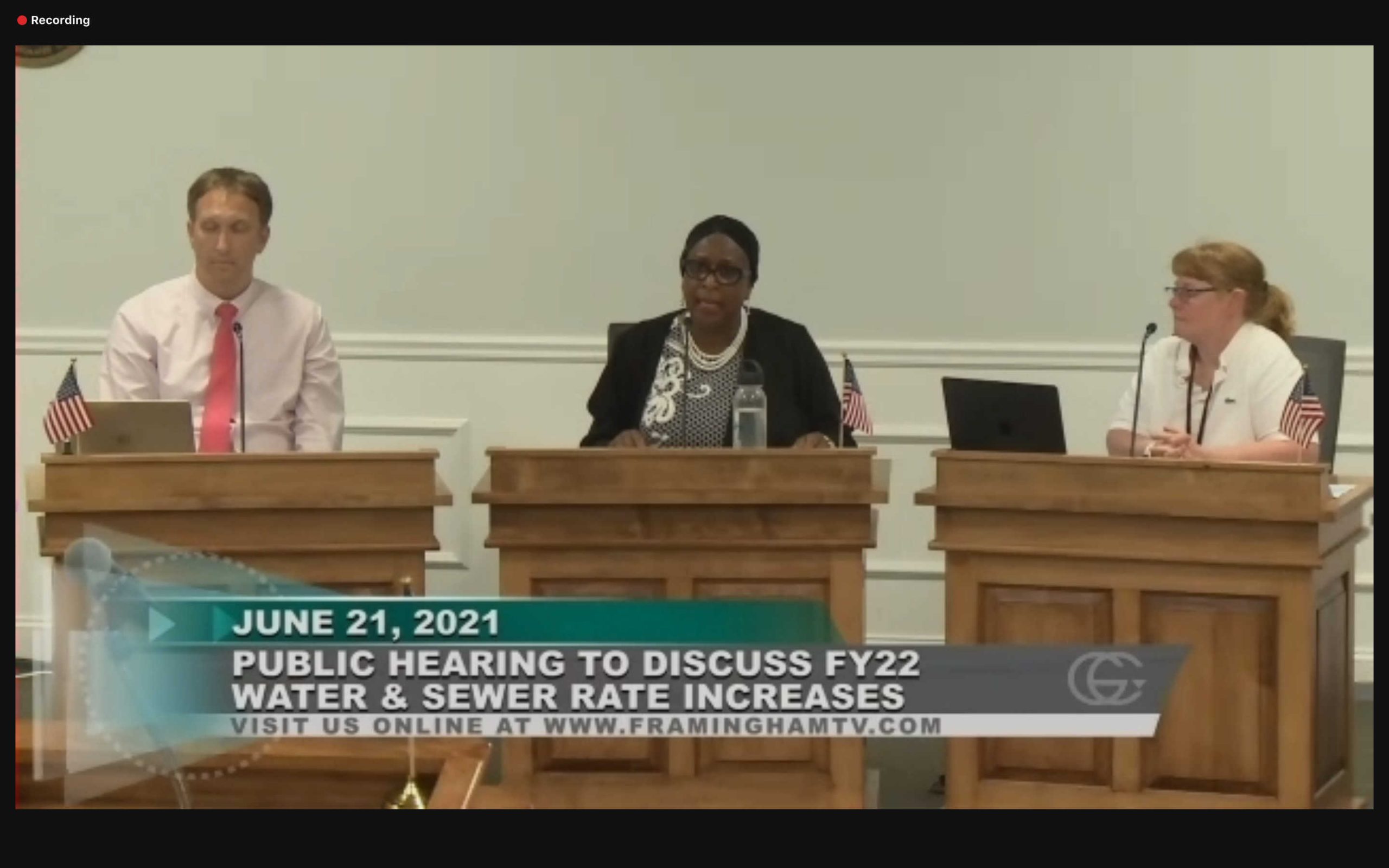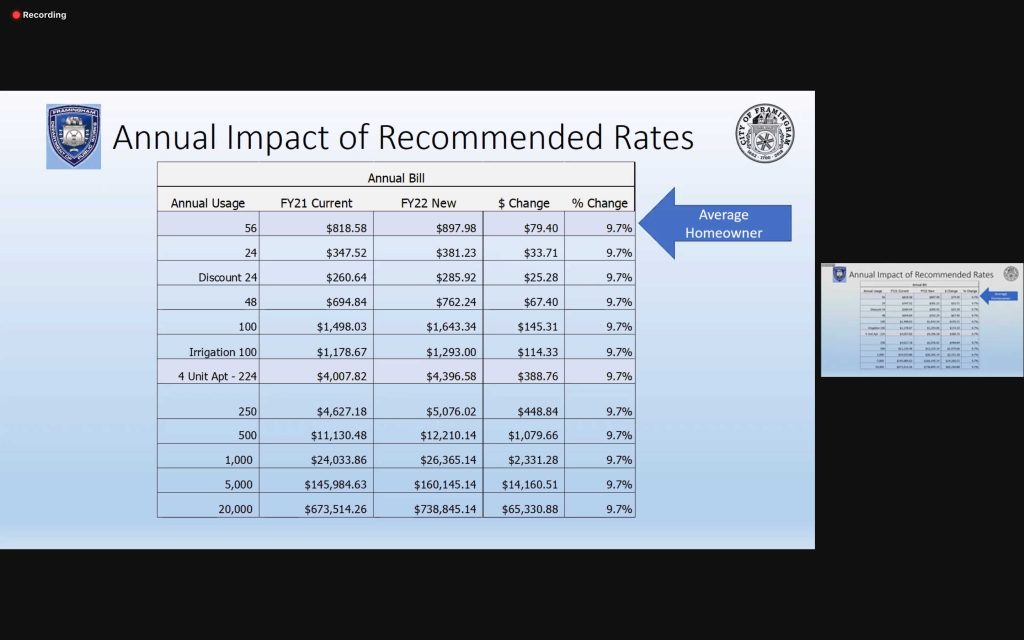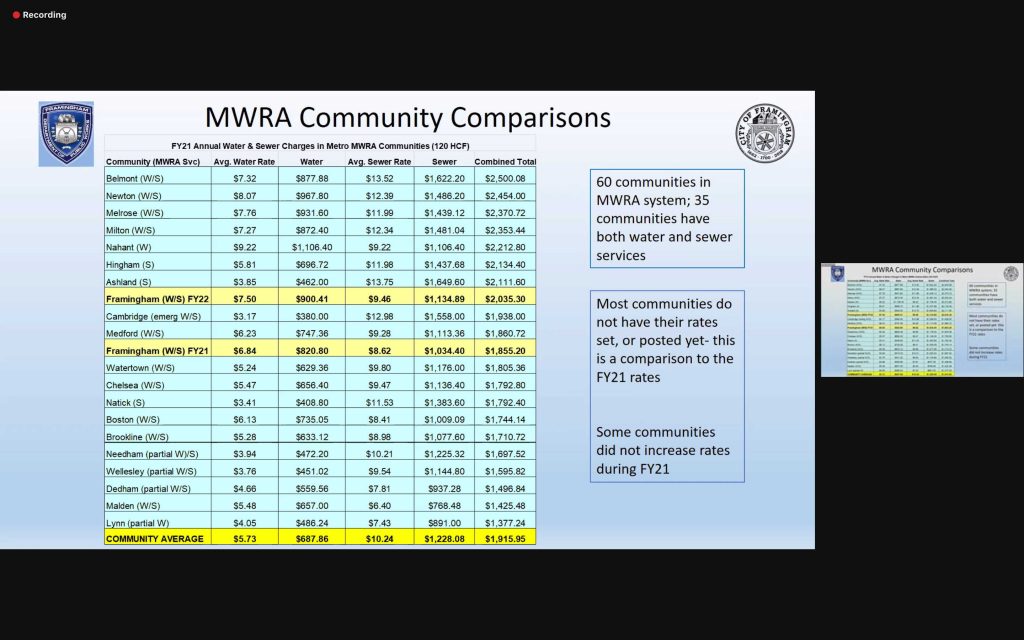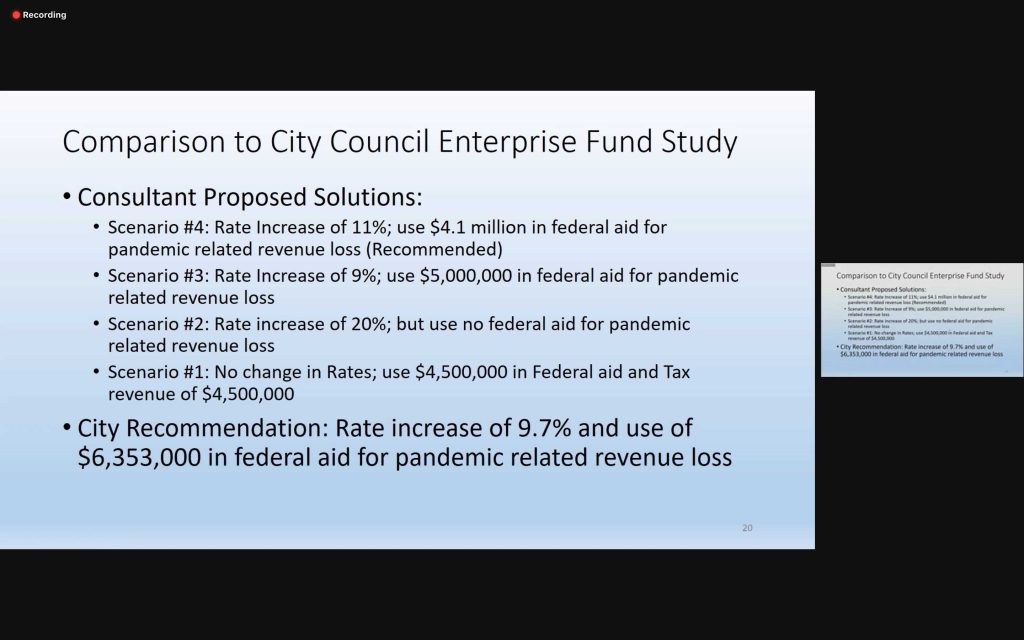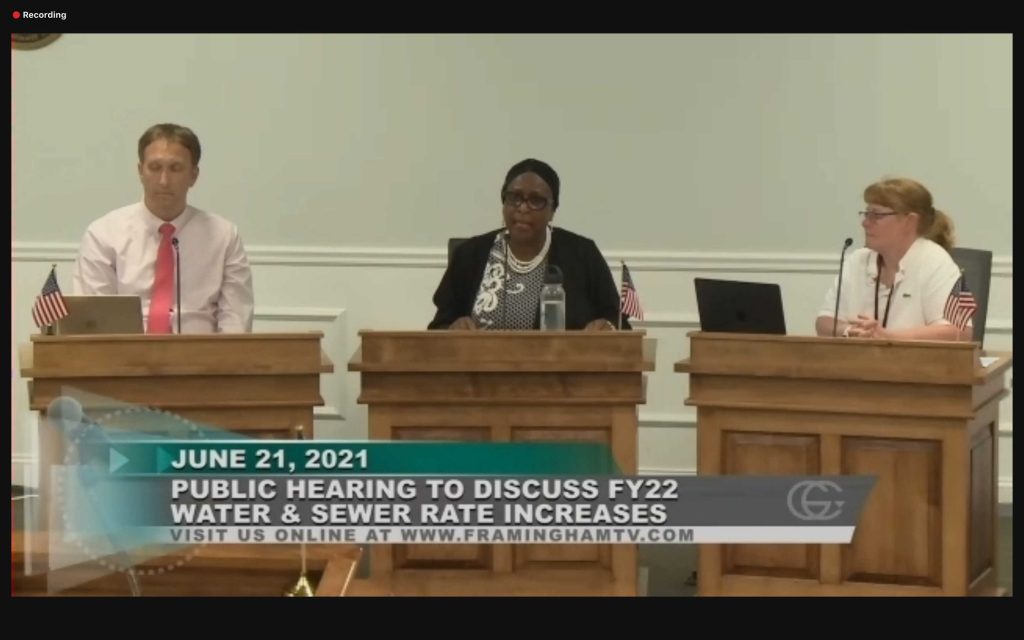By Grace Mayer
***
[broadstreet zone=”54526″]
FRAMINGHAM – After not raising water and sewer rates during the pandemic, City of Framingham Mayor Yvonne Spicer held a public hearing Monday night to hear from residents on her plan to hike rates by 9.7% – an increase that will require an additional $79.40 out of homeowners’ pockets.
“We’re now looking at this difficult situation that is going to cost a lot of people significant amount[s] of money going forward,” said District 7 resident Magda Janus, during the June 21 hearing.
Chief Financial Officer Mary Ellen Kelley said the average Framingham homeowner, who uses around 56 units of water per year, will now have to pay the annual water and waste cost of $897.98 or around $75 per month.
This is up from the previous fiscal year’s $818.58 annual cost.
The public hearing was a hybrid format, where City leadership was live in the Blumer room with residents, but that residents could also participate via Zoom too.
[broadstreet zone=”59947″]
The COVID-19 pandemic, although a contributing factor, was not solely the reason for the uptick from 2019’s 2.5% rate
While hotels, restaurants, and office buildings were shut down during the pandemic, CFO Kelley said the lack of these major water sources created a decrease in water and sewer consumption, consequently amping up these costs for homeowners and business owners.
But even before the pandemic, CFO Kelley said these “tier-5” water users, which are responsible for some of the highest water consumption in the city, showed a decrease in usage over the past three years.
Despite this trend, water and sewer rates were not significantly raised during these times, remaining at 2% and 2.5% in 2019 and 2020, respectively.
“We did see a structural shortfall that was creeping up on us over the last three years, and we’re making an adjustment this year on that,” CFO Kelley said.
Although the hold on increasing rates last year was also cited as a reason for the spike, the City of Framingham’s water and sewer surplus funds—which worked to maintain low rates in the past—had also been teetering into a deficit before the pandemic.
[broadstreet zone=”59984″]
For the past three years the water and waste budget was buoyed by surplus funds, during which sewer rates remained relatively low, explained Spicer administration leaders.
Rather than gradually increase the rates, the City of Framingham relied on these funds, plunging the City’s water & sewer funds into debt—a situation that was further exacerbated by the pandemic.
CFO Kelley also attributed the rate increase to the addition of standard annual costs, including a 21% increase in the fixed costs for managing the water and sewer system, which also had been dropped the previous year due to the pandemic.
“Last year, when we were in the thick of the pandemic, I did not increase rates at all, and I know this is a pattern that is very difficult to continue on if, in fact, the costs are going up exponentially,” Mayor Spicer said.
Through this combination of events, Frarmingham residents are now bearing the costs, after a brief reprieve from rising rates during the pandemic.

“Is this the best time to have this on a lot of the residents who are already suffering?” Framingham resident Shamshed Ahmed asked.
In response, CFO Kelley said that residents who may have difficulty covering these costs can apply for assistance through the Community Development Department.
Although there are some exemptions offered for veterans and seniors, she said there’s no low income exemption offered through the program.
Even though the rate will increase to 9.7%, additional funding from the American Rescue Plan passed by the Biden administration is being used to help mitigate rates. If the federal funds were not used to bailout the water & sewer enterprise funds, the rate increase could be as high as 20%, said a consultant.
Earlier this year, the Framingham’s City Council hired a consultant Douglas Gardner, who offered four solutions that would help to stabilize the City’s water and sewer enterprise funds. He said the Spicer administration was ‘drowning’ when it came to its water & sewer enterprise funds.
Going forward, Mayor Spicer said the City of Framingham is looking for ways to achieve “consistent and predictable” rate increases.
[broadstreet zone=”59983″]
Looking back at the costs from the pandemic, CFO Kelley said if the city had increased rates from previous years by 4%, this would have mitigated the sudden increases in water and sewer rates that Framingham residents are now faced with.
The new 9.7% rate increase is set to take effect on July 1, when the fiscal year for 2022 begins.
The Mayor said would still be willing to take feedback this week.
“It’s certainly a lesson learned from something that we would never have anticipated, but you’ve got to learn from history,” said CFO Kelley, who is leaving the administration at the end of this month.
CFO Kelley said the city plans to implement modest rate increases in the future, but how businesses bounce back from the pandemic will ultimately impact future water and waste rates.
“It’s going to be hard to predict how businesses come back in terms of [water and sewer] usage, and in terms of bringing people back into offices and consuming water and sewer services,” CFO Kelley said.

***
***
Grace Mayer is a senior at Boston College studying marketing and journalism. She is also the head arts editor for Boston College’s newspaper, The Heights, where she’s covered the arts beat for three years. She is excited to report on a variety of beats for Framingham SOURCE this summer. You can contact her at gemayer007@gmail.com.

